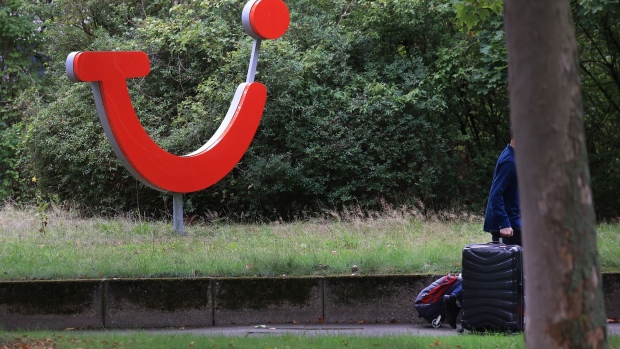Jan 26, 2023
TUI Picks Banks for Rights Offering to Repay Bailout
, Bloomberg News

(Bloomberg) -- TUI AG has picked banks to arrange a rights offering to help repay part of a German government bailout package, people familiar with the matter said.
The travel company has chosen Bank of America Corp., Barclays Plc, Commerzbank AG and Deutsche Bank AG to work on the capital increase, the people said, asking not to be identified discussing confidential information.
Analysts have said TUI may seek more than €1.5 billion ($1.6 billion) from the offering, though precise terms haven’t been decided. TUI may add more banks to the lineup for the deal, which could launch as soon as the next few months, the people said. The planned rights issue will only come after TUI’s annual general meeting in February.
Hanover-based TUI received €4.2 billion in state assistance in 2020 as the Covid-19 crisis brought the global travel industry to its knees. Late last year, it agreed on a plan to repay a chunk of that amount through capital increases.
It said in December that money raised would be used to pay back a €420 million silent participation and a hybrid debt-equity instrument, and reduce a credit facility with Germany’s state investment bank.
TUI’s biggest investor, Unifirm Ltd., is controlled by the family of Russian billionaire Alexey Mordashov, who’s been sanctioned by the European Union. While typical rights issues see stock offered to existing shareholders in proportion to their holdings, TUI may have to adopt a different structure that allows for new or existing investors to take up Unifirm’s portion of the offering, according to the people.
Deliberations are ongoing, and details of the deal could change, the people said. Representatives for TUI, Bank of America, Barclays and Deutsche Bank declined to comment, while a spokesperson for Commerzbank didn’t immediately respond to emails and phone calls seeking comment.
Like industry peers, TUI’s prospects have been improving since the lifting of pandemic travel restrictions. The company is seeking to increase market share as a cost of living crisis weighs on consumer spending, pushing people toward lower-cost package holidays that include flights, accommodation, bus transfers and food.
--With assistance from William Wilkes.
©2023 Bloomberg L.P.






